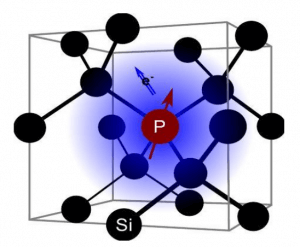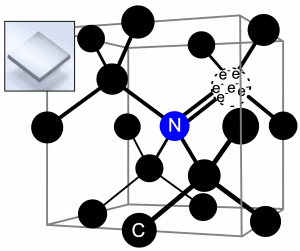Summary
There are small quantum systems over which we have very good control and which have long lifetimes. Examples include the phosphorous (P) defect in silicon (Si) and the nitrogen vacancy (NV) defect in diamond. With P defect in Si, we focus on improving our understanding of the hyperpolarization mechanism to better enable engineering of quantum systems that are highly and quickly polarizable with long coherence times. With the NV defect in diamond, we are developing control methods to suppress zero-field splitting, a miniaturized optics setup and a small package for the required microwave and control hardware. We also utilize the NV defect in diamond as a chemical sensing platform to enable sensing of a target molecule of choice. Advancements in these areas offer the potential to transform a host of technologies from gyroscopes to magnetometers.
Related Content

Chiral Quantum Antenna Based on Multilayer Metasurface
Summary Individual atoms can act as stationary qubits and thus serve as nodes in quantum computing networks or as memories for quantum repeaters. However, to successfully use qubits based on single atoms suspended in free space, photons emitted by a single atom need to be efficiently collected. Conventionally, this can be done with high […]
September 20, 2018

Mesoscopic systems as coherent control elements
Summary Mesoscopic systems provide a new tool for quantum systems design. In particular, they are enabling of robust quantum control. Here “mesoscopic system” refers to a connected network where each element, if studied alone, would be a quantum bit. The network is too big to be treated fully quantum mechanically. We do not have individual […]
September 1, 2016

Hybrid Quantum Repeater based on Atomic Quantum Memories and Telecom Wavelength Entangled Photon-Pairs Generated from Semiconductor Nanowires
Summary Losses in physical channels, such as optical fibres, limit existing quantum communication systems to modest distance ranges. Since amplification of quantum signals is fundamentally not possible, we look to extend the range and functionality of these quantum channels by adding quantum memory nodes that can daisy-chain multiple lengths of quantum channels through entanglement […]
October 29, 2018




